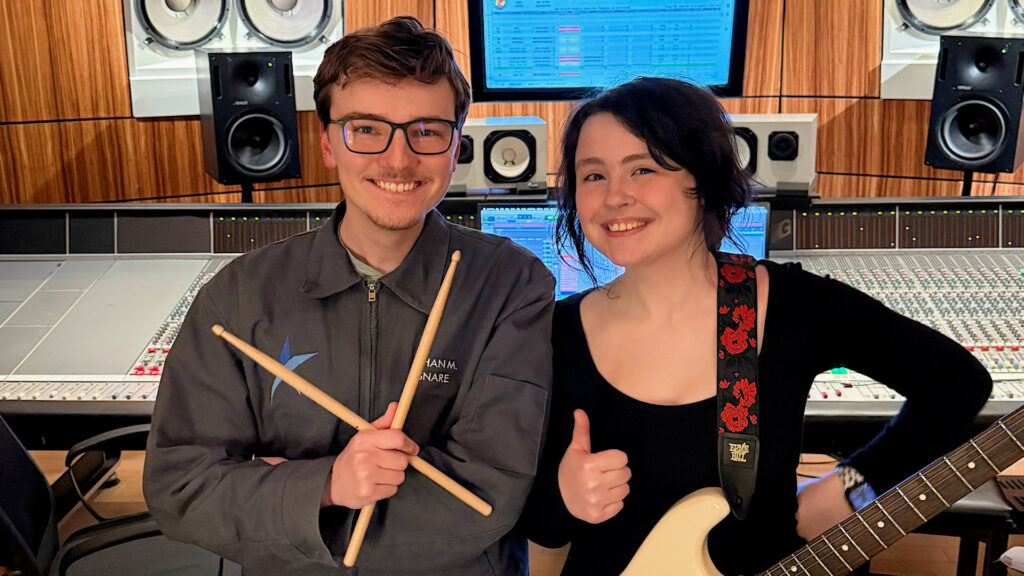Ella Becker, a graduating college senior, expressed feeling underprepared as she approaches graduation. “I feel a little underprepared, like I’m not really sure where I’m going or what I’m doing, and I’m just kind of going with it,” Becker said.
Studies show millions of young adults share this sentiment as they prepare to receive their college degrees. The feeling of being lost began in the spring of 2020, when the COVID-19 pandemic disrupted t heir high school experience, leaving a lasting impact on how they face real-world challenges.
heir high school experience, leaving a lasting impact on how they face real-world challenges.
Ethan Munro, another graduating college senior, recalled the absence of prom and the delayed graduation ceremony.
“There was no prom, and then graduation was also canceled, but we ended up having it later, like months after,” Munro said.
The COVID-19 pandemic struck as Becker and Munro were wrapping up their high school careers, looking forward to college. Instead, they experienced an unusual transition with no prom and a graduation ceremony lacking the usual pomp and circumstance.
Becker’s music career took a strange turn during the pandemic.
“We used to do rehearsals in person every week, and then suddenly that had to be transitioned onto Zoom, which was really difficult, trying to practice with other people on Zoom because it never worked. You can’t play instruments at the same time because there’s lag and internet issues,” Becker said.


Upon arriving at college, they encountered more “strangeness,” as Munro described.
“The college experience was a lot less social than I thought it would be because of that,” Munro said.
Becker added, “We had to wear masks, and all of our chairs were about six feet apart from each other, and we were all separated into different rooms because it was like an empty mall or something.”
Bronwyn Nichols Lodato, an assistant professor in arts and sciences at Washington University in St. Louis, noted the profound loss of the orientation experience for students when they arrived on campus. Lodato’s book, “COVID-19, The Great Recession and Young Adult Identity Development: Shock-Sensitive Dynamic Ecological Systems Theory,” offers a window into the lived experiences of first-year college students during that time.
Despite the extraordinary times, Lodato discovered that the students she interviewed were committed to continuing their postsecondary education.
“They were committed to getting their degrees. It gave structure to their lives and served as its own coping mechanism,” Lodato said.
Even with universities’ best efforts, many students continued to feel lost. A 2023 study by Northwestern University found persistently high levels of anxiety and depression among younger adults compared to middle-aged adults.
Becker shared, “I’ve always been kind of a hypochondriac, but I think since the pandemic, that’s kind of escalated, so I’m always wary about touching other people or being in places where people are coughing or sick.”
Despite their trepidation, this generation of college graduates isn’t giving up.
“I feel like that’s something everyone goes through. So, I know I’m not alone in that aspect, but I’m still hopeful,” Becker said.

Munro added, “I think now I’m aware that something could happen, and the world could change very quickly, and I think that’s something that I’ve kind of taken away from it.”
As they enter the job market, their uncertainty remains evident. Becker hopes potential employers will understand and relate to their experiences.
“In a job interview, do I shake their hand, or do they not want to touch my hand? That’s something I think about,” Munro pondered.
For companies looking to hire these new graduates, Lodato hopes hiring managers remember that these young adults have already been through a lot and still have many life skills to develop.
“We have to be thinking in terms of these human developmental needs, not just as students and youth and young adults alike, but whether you’re enrolled or not, they just missed out on and understand how we can fill those gaps to continue to support thriving,” Lodato said.


